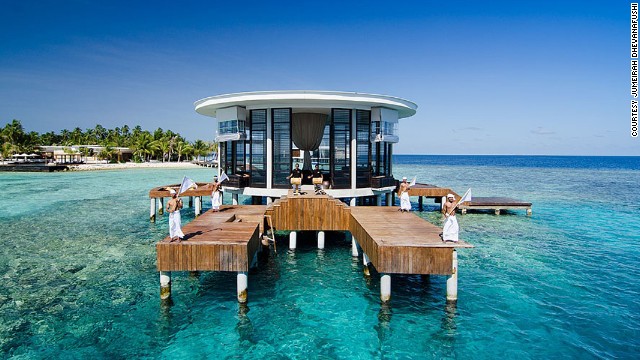(CNN) -- With its luminous body seemingly hovering above the water, and five spidery legs plunging deep into the sea, this futuristic building could be the mothership in a sci-fi film.
In fact, it's the design for one of the world's largest underwater hotels -- and it could be coming to a beach near you.
Introducing the Water Discus Hotel, a luxury multi-million dollar resort featuring 21 moveable rooms found in the heart of spectacular coral reefs.
Maldives to Dubai
The space-age hotel is now set to be built on the remote -- and postcard perfect -- tropical island of Kuredhivaru in the Maldive Islands, with the National Ministry of Tourism giving the go-ahead to the ambitious plan last week.
The United Arab Emirates may soon be the next home of the high-tech hotel, with a Dubai construction company also in negotiations to build the surreal structure.
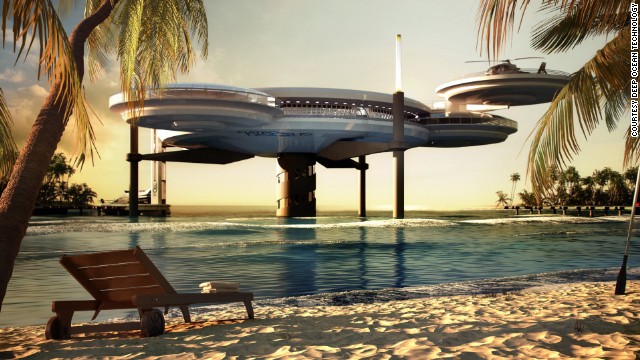 |
| It might look like a spaceship, but this remarkable design is in fact a luxury underwater hotel. |
"There are many people who will never have the courage to dive to these beautiful reefs," designer, Pawel Podwojewski, told CNN.
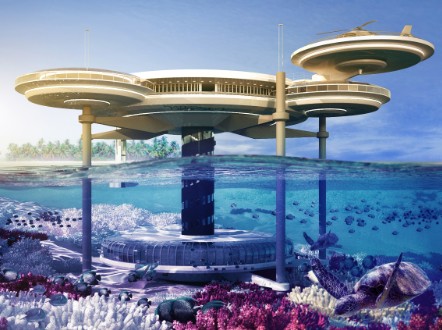 |
| The Water Discus Hotel, to be built in the Maldives |
"But here you will have the chance to explore an underwater world from the comfort of your bedroom."
Space-age seascape
Described as "Star Trek meets the undersea world of Jacques Cousteau," the remarkable building -- valued at up to $50 million -- is the brainchild of Polish company Deep Ocean Technology, backed by Swiss investors.
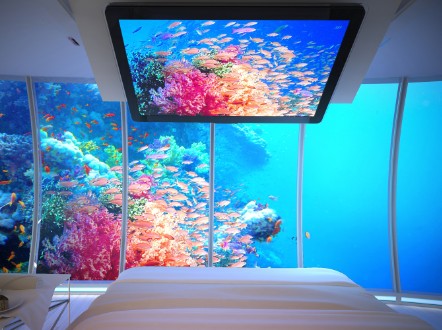 |
| Wake up to different ocean views in the underwater hotel |
The luminous hotel features two large disc-shaped lounges seven-meters above the water, housing a luxury restaurant and spa.
The lounges are connected to a glass tunnel plunging 30-meters below the water, leading to 21 opulent bedrooms.
"A lot of people have said it looks like something from a James Bond film," said Podwojewski. "I'm a big fan of the movies, so perhaps that was an inspiration."
"I wanted to keep it as sleek and simple as possible -- so the sphere shape is very efficient."
Deep end
The cutting-edge hotel may plunge deep beneath the ocean, but its luxury facilities are sky-high, including a helicopter landing pad and rooftop swimming pool.
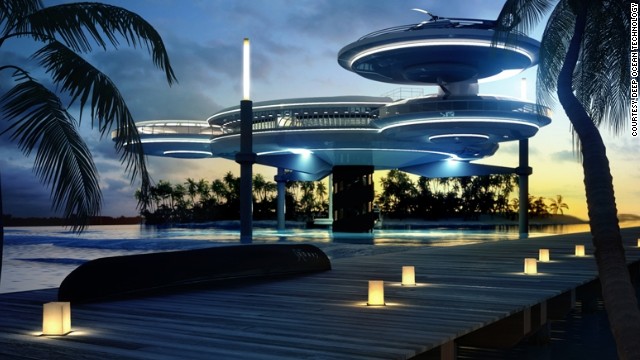 |
| The sleek design, which can cost up to $50 million, is now set to be built on the remote tropical island of Kuredhivaru in the Maldives. |
Guests can sit back and enjoy views of vibrant reefs and tropical fish, all from the comfort of their bed.
Those wanting to explore the spectacular underwater world, can also dive straight in from the hotel's airlock compartment, including its own decompression chamber.
The more adventurous can even take a ride in a three-passenger deep-sea submarine.
Moving on up
Not only does the hotel look like a spaceship -- it actually moves like one, with the largest underwater saucer-shaped room able to slide to the surface in emergencies.
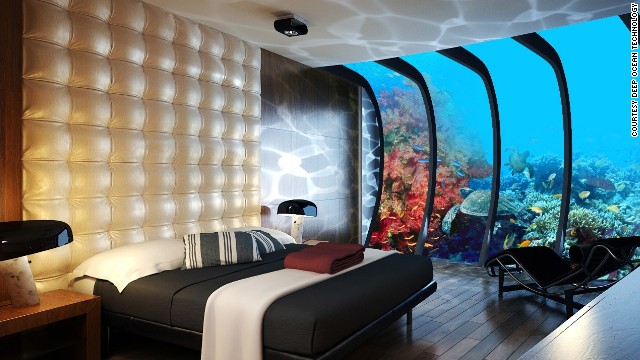 |
| Guests can enjoy views of vibrant coral reefs and sea creatures, all from the comfort of their bedroom. |
"If you need to replace a window for example, it's very difficult underwater," explained Podwojewski. "So we wanted to build a building that can surface any time for maintenance or safety."
"It's a bit like a balloon underwater -- when we let go of the water from the room's huge tanks, the balloon will surface automatically. It doesn't need to rely on electricity."
Environmental concerns
Developers hope to limit the impact on coral reefs by laying the foundation in as few points as possible.
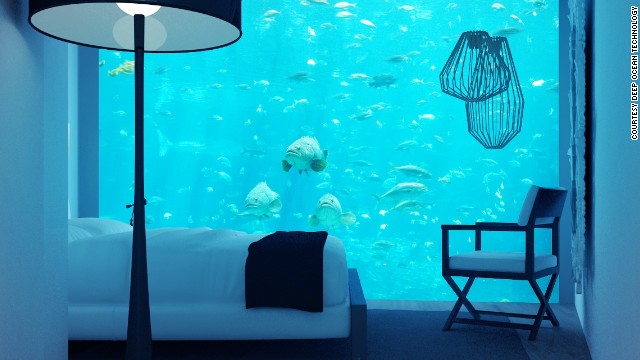 |
| More adventurous guests can dive straight into the water from a special airlock compartment, including its own decompression chamber. |
There are also plans to rebuild coral reefs, by growing the vibrant eco-systems in a special plantation before relocating them around the hotel.
"To preserve the natural environment we have developed couple of kinds of foundations depending on the local conditions," said Podwojewski. "The key is to touch the sea ground in just few points."
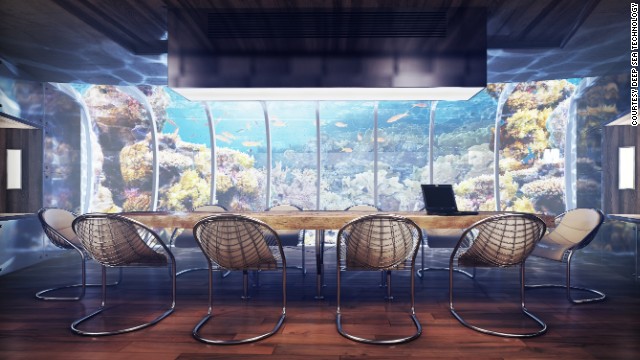 |
| The unique hotel may soon be built in the United Arab Emirates, with Dubai construction company Drydocks now in negotiations with designers. |
"Most probably the hotel will land on a flat sand area to reflect the sun rays inside the rooms and the reef will be additionally planted around the hotel rooms to enrich the view."
The space-age design might seem like something from the future. But it seems this unique underwater hotel will be much closer than you think.
Source: http://edition.cnn.com/2013/06/10/travel/space-age-underwater-hotel-maldives/index.html?iref=allsearch

